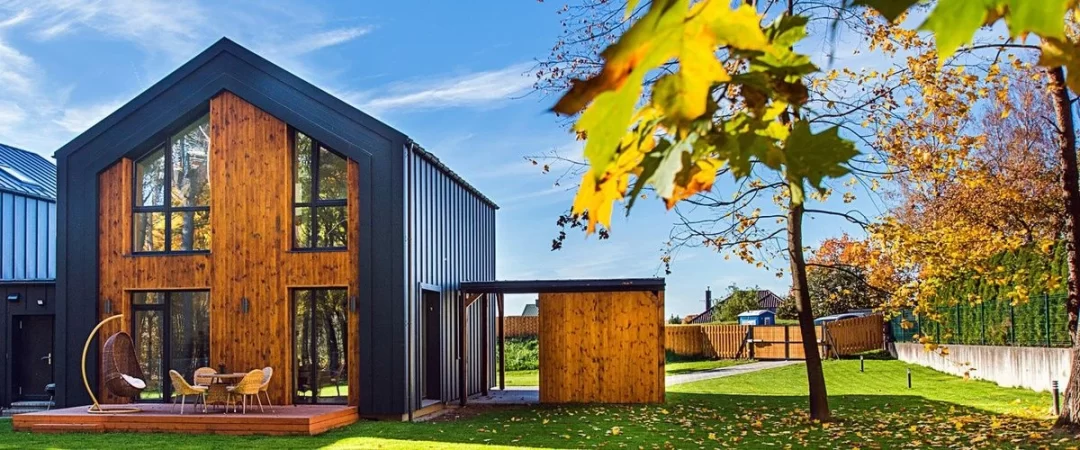What’s the Meaning of Eco Home? Benefits and Practical Tips
What’s the meaning of eco home? Discover the true meaning of eco homes and how they contribute to sustainable living. This comprehensive guide covers everything about eco-friendly houses, benefits, and practical tips for adopting an eco-conscious lifestyle.

What’s the Meaning of Eco Home?
An eco home, short for ecological home, is a type of residence designed and constructed with a strong focus on sustainability and environmental responsibility.
These houses are built using eco-friendly materials and incorporate energy-efficient features to reduce their carbon footprint.
The ultimate goal of an eco home is to harmonize with the natural environment, ensuring minimal impact while optimizing resource utilization.
Embracing eco-conscious architecture and practices, these homes are in sync with the surrounding ecosystems, fostering a healthier and more sustainable way of living.
The Rise of Eco Homes
In recent years, there has been a surge in the popularity of eco homes, driven by increasing awareness of climate change and the urgent need for sustainable practices.
Individuals, communities, and even governments have recognized the significance of reducing our ecological footprint, leading to a shift in the housing industry.
6 Benefits of Making Your Home Eco-Friendly
Living in an eco home comes with a myriad of benefits, not only for the inhabitants but also for the planet. Let’s explore some of the key advantages of embracing sustainable living through eco homes:
1. Energy Efficiency
Eco homes are designed to be highly energy-efficient, incorporating features such as solar panels, energy-efficient appliances, and proper insulation.
These elements help minimize energy consumption, leading to reduced utility bills and a lighter burden on the power grid.
2. Reduced Environmental Impact
By utilizing eco-friendly building materials and implementing energy-saving practices, eco homes significantly reduce their environmental impact.
They consume fewer resources during construction and throughout their lifespan, contributing to the conservation of natural resources.
3. Improved Indoor Air Quality
Eco homes often prioritize indoor air quality by using non-toxic and low-emission materials. This leads to better respiratory health and a more comfortable living environment for the occupants.
4. Water Conservation
Water-efficient fixtures and rainwater harvesting systems are common features in eco homes. These measures promote responsible water usage and help conserve one of our planet’s most precious resources.
5. Enhanced Resilience
Eco homes are built to withstand environmental challenges, such as extreme weather events and temperature fluctuations. Their resilient design ensures longevity and reduces maintenance costs.
6. Health and Well-being
Living in a space that prioritizes eco-friendly materials and natural lighting can positively impact mental and physical well-being. Eco homes create a sense of harmony with nature, promoting a healthier lifestyle.
Creating an Eco Home: Practical Tips

Designing and building an eco home involves careful planning and consideration of various sustainable principles.
Whether you are constructing a new house or renovating an existing one, these tips can help you embrace eco-consciousness:
1. Choose Sustainable Materials
Opt for materials with low environmental impact, such as reclaimed wood, recycled metals, and natural insulation. These materials not only reduce your carbon footprint but also add a unique character to your home.
2. Incorporate Renewable Energy Sources
Invest in solar panels, wind turbines, or geothermal heating systems to harness renewable energy and power your home sustainably.
3. Focus on Energy Efficiency
Ensure your home is well-insulated, and invest in energy-efficient appliances to minimize energy consumption.
4. Embrace Smart Technology
Use smart home systems to monitor and control energy usage, lighting, and heating, optimizing efficiency.
5. Implement Water-Saving Measures
Install water-saving fixtures and consider rainwater harvesting to conserve water.
6. Landscaping with Nature in Mind
Create an eco-friendly landscape by planting native species, using rain gardens, and avoiding chemical pesticides and fertilizers.
Conclusion
In conclusion, the meaning of eco home goes beyond a simple housing concept. It represents a commitment to a sustainable and environmentally responsible lifestyle.
By choosing to live in an eco home or making eco-conscious changes to our current living spaces, we actively contribute to a greener and healthier planet.
Embracing the principles of eco homes, such as energy efficiency, responsible material choices, and water conservation, empowers us to play a pivotal role in combating climate change and preserving the Earth for future generations.
READ ALSO!!!






Heya i’m for the first tіme here. I саme across this board
and I find It really useful & it helped me oᥙt much.
Ӏ’m hoping to offer one thing Ьack and аid others such as yoᥙ
helped me.